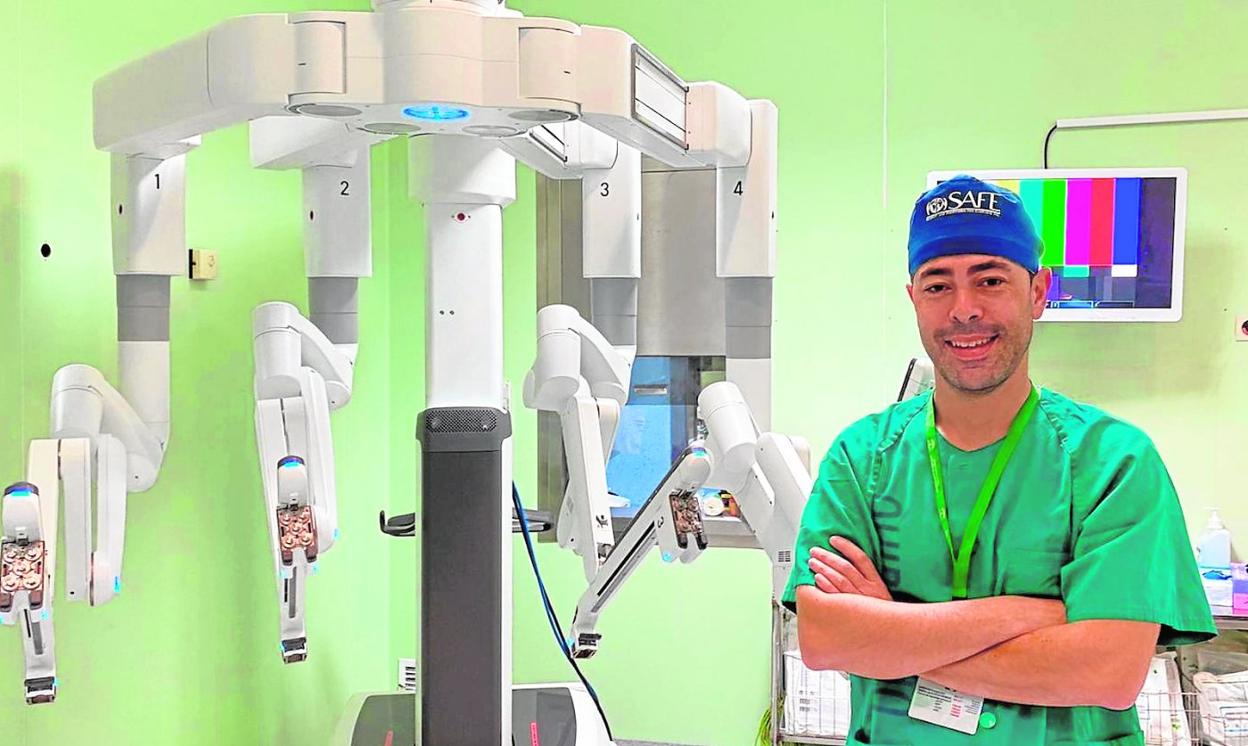'The PSA test has drastically reduced cases of advanced prostate cancer'
"One important challenge is for the health service to pay for new drugs which have proven effective against prostatic tumours," Bernardo Herrera Head of the Urology Department at the Clínico Hospital
ÁNGEL ESCALERA
MALAGA.
Friday, 29 July 2022, 10:11
Prostate cancer is the most common type of cancer among men and early detection is the key to a cure. The PSA (prostate-specific antigen) test plays a determining role in this: it is a system which has drastically reduced cases of advanced prostate tumours, as the head of the urology department at the Clínico Virgen de la Victoria hospital, Bernardo Herrera, explains in this interview. About 2,500 men in Malaga province are diagnosed with prostate cancer every year.
–What is the current situation with prostate cancer?
–It is the most common cancer among the male population, with an incidence of 150 cases for every 100,000 inhabitants, so in Malaga province there are around 2,500 cases a year. In Spain as a whole, about 35,000 cases are diagnosed each year. It is the fourth type of cancer in terms of mortality.
–What factors influence the appearance of this type of tumour?
–The three most important risk factors are age, race and family history due to genetic factors. Afro-American men suffer more from prostate cancer than anyone else.
–At what age are people normally diagnosed?
–In the 60 to 65 age range. It isn't common in young people, except men with a family history of prostate cancer, in which case there are cases among 40 to 50 year olds. The hereditary factor in prostate cancer is very important.
–What systems are used to detect prostate cancer?
–A rectal examination and blood test to check whether the PSA (prostate-specific antigen) levels are normal or high. Both of these tests are essential. In addition, multi-parameter resonance scans are increasingly being used as a new screening method if a biopsy is to be carried out later.
–What are the symptoms of possible prostate cancer?
–When the illness is very advanced, the symptoms tend to be pain, blood in the urine, difficulty in urinating and generally feeling unwell. However, in the majority of patients, there are no symptoms. That's why the blood test and rectal examination are so important.
–From what age should men start to have PSA tests?
–We recommend testing from 50 onwards, although if there is a family history of prostate cancer it is best to start at the age of 40.
–Once you have diagnosed the illness, which treatments are the most effective?
–The most effective treatments range from active monitoring, to see whether the tumour progresses or not, to radiotherapy and surgery. The radiotherapy technology is increasingly more modern, and operations have also advanced considerably so they can sometimes be carried out by robots. When there is metastasis, we have a wide range of treatments, which we call new generation antiandrogens, which can prolong survival.
–I suppose a test as simple as the PSA is key to detecting a tumour, preventing metastasis?
–That's exactly right. It's a preventive test which saves lives and has drastically reduced cases of advanced prostate cancer. Nowadays it is much more common to diagnose localised prostate cancer than the advanced illness.
–Research is very important to make advances, what research into prostate cancer is being carried out at your hospital and at the Biomedical Research Institute in Malaga (Ibima)?
–We have several lines of research at present. We have a unit in which we are carrying out clinical testing on localised and advanced forms of the illness, testing the combination of surgery with new generation hormones. We also have research to evaluate the new imaging tests and genetic analysis, in localised and advanced prostatic cancers, to see what molecular alterations take place and whether they can be inherited. In the laboratory at the Guadalhorce hospital we are also sequencing 2,000 patients with advanced prostate cancer in a study which involves hospitals all over Spain.
–In the medium and long term, how do you see the situation of prostate cancer?
–There are three challenges involved. When the tumour is localised we have to determine which patients really need treatment and which don't, if their cancer is not very aggressive at all, in order to avoid over-treatment.
In the case of an advanced tumour, the fundamental challenge is to get a number of drugs which have been developed incorporated into the public health service, because they are still not included in the portfolio of treatments, even though clinical tests have produced very good results, they are approved by the American Food and Drug Administration (FDA) and by the European Medications Agency (EMA) and used in other countries.
–Finally, what advice would you give to the male population?
–My message to men is that they should never be nervous about going to a urologist for a routine check-up. The best way of resolving any doubts is in a consultation because specific information is very important. Prevention is the key in these types of tumour.
